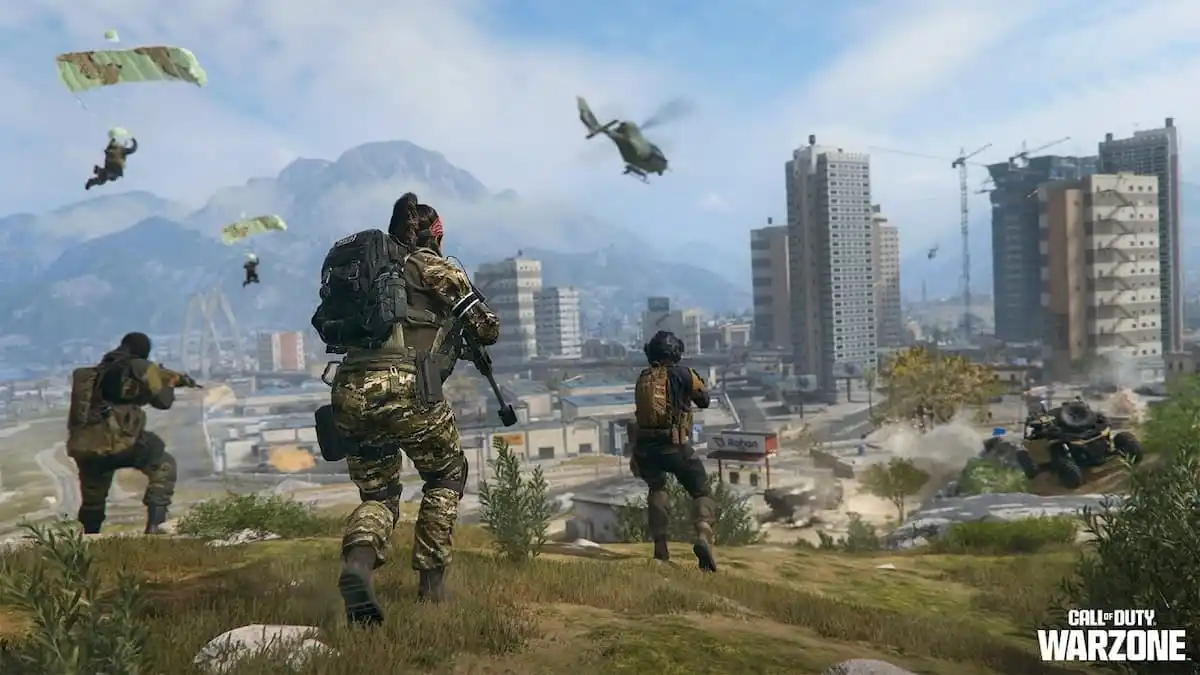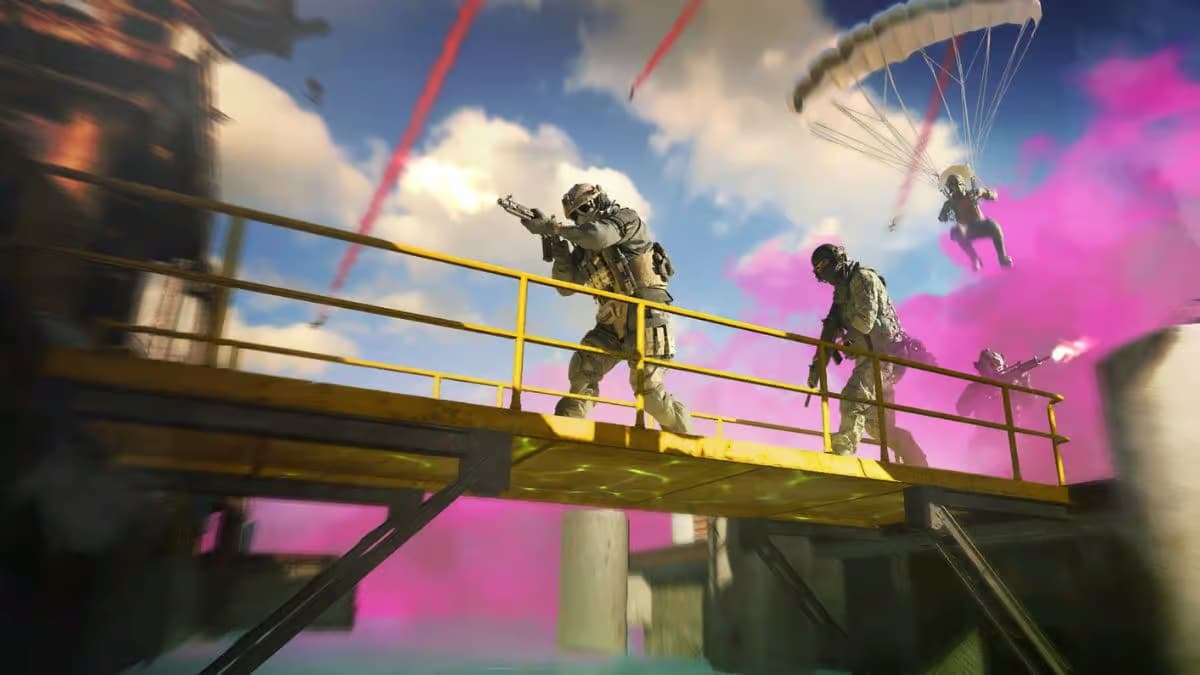[Note: We’re not just a (rad) news site — we also publish opinions/editorials from our community & employees like this one, though be aware that they may not jibe with the opinions of Destructoid as a whole, or how our moms raised us. Want to post your own article in response? Publish it now on our community blogs.]
Through and through, I love a good story in a game. I may be slow on this, but I just heard about Homefront, which makes its debut on consoles in the US next week. The plot is based around a unified Korea rapidly rising to become a new superpower in the Far East and invading the United States, and is written by the guy behind Red Dawn and Apocalypse Now — John Millus.
Certainly, an interesting premise! Then… I went ahead and checked out the timeline for what happens up to the point of the invasion of America in 2027. It dealt a major blow to my faith in the game. Alternate history can be really dicey, but to me, there are limits of how much the story can stretch plausibility. To me, this story goes well beyond what’s entire plausible and even possible.
Putting my history degree to use for once, I’ll go through the timeline bit by bit and give my counterpoint. Now, before we begin, I may as well say a few things: I understand that Kaos Studios and Mr. Millus have advisors and whatnot to help them flesh out the story. But, from the bit that I’ve seen, their advisors mostly focused on Korean culture and history.
What’s the issue here? Well, from what I’ve read, it turned the story into a big apologist/vengeance piece against the mistreatment of Korea during and after World War II. The US did awful things there, and horribly mismanaged South Korea in the leadup to the Korean War, but I don’t think that the mirror image would happen if Korea was lording over the United States.
Onto the timeline!
2011: North Korea faces another UN sanction over its latest nuclear test.
This happens all the time. Nothing too surprising there. North Korea does something brash, puts everyone on high alert, and then demands food/aid to back off. Standard operating procedure.
2012: Kim Jong-Il passes away, he is succeeded by his son Kim Jong-un.
Not surprising, either. Kim Jong-un has been groomed for the last few years to take over the throne after his father croaks. For a while, there was discussion about someone other than from the Kim line taking over, but Kim Jong-un was quickly pegged after that.
2013: Kim Jong-un is awarded the Nobel Peace Prize and featured on the cover of Time Magazine for his accomplishment of Korean reunification.
Nobel Peace Prize for the re-unification of Korea? Sure. That I don’t bat my eye at. But it wouldn’t go to Kim Jong-un — it’d go to whoever is in charge of South Korea. Why? Two reasons: first, Kim Jong-un has been shown to have similar tendencies to his father, something that the KCIA and greater intelligence community is aware of. He would not be the one leading the discussion — it’d be the South Korean leader, because they’re the ones who have been trying to reunify the country for years, not the north.
Second, it’s a much greater gesture of humanity by the South to take the North than the North to rejoin with the South. The North Korean economy is a basketcase, its people are living in god-forsaken poverty and seem to be stuck in the 1950s still. For South Korea to take on all of North Korea’s debt, attempt to build its infrastructure, and suddenly deal with the tidal wave of poor and destitute would tank its economy for years to come. Just look at East/West Germany — the western half is still picking up the pieces in the East.
2014: American military withdraws from the Korean Peninsula. General Motors declares bankruptcy for the second time.
General Motors going bankrupt? Plausible, through mismanagement. But the American military withdrawing from the Korean peninsula? Nope! China is still a looming threat, not to mention that because of the increased instability of the Korean Peninsula, the US forces are going to stay there, guaranteed. I cannot think of a plausible reason why they’d leave.
2015: The effects of peak oil are felt as gas prices reach up to 20 dollars a gallon due to a war between Iran and Saudi Arabia. Russia cuts off all oil trade with Europe. Survivalist literature become bestsellers in America. China’s influences diminish.
I can see China’s influence diminishing because they finally see their bubble burst — it’s something I’m actually expecting, and 2015 is a good time to peg it. Now, the war between Iran and Saudi Arabia. More likely than not, the US would support the Saudis in the war, which would put a quick end to Iran, in my mind. And why would Russia cut off its oil trade with anyone? That’s pretty much the sole thing keep Russia wealthy right now is all their oil, unless they decide to sell solely to Asia/Pacific and the U.S.
2016: America withdraws its military from Japan and other countries overseas, focusing on its instability back home. Texas splits from the United States, border bloodshed takes place as refugees from other states attempt to enter Texas.
The American military pulls out of Japan? Excuse me? First off, Japan wouldn’t let us go, because we’re basically the big guns behind their self-defense force, and if they’re economy is still in a slump, they don’t want to have to diverge more funds towards building a standing army of their own. Second, the US wouldn’t want to leave, because we get so much money from Japan through selling them arms, vehicles, and ships. It’s a cash cow for the military.
I’ll get to the instability back home in the next bullet point. Texas seceding from the Union? There would be a crackdown of major proportions, were that to happen — the courts long ago made secession illegal, and I cannot imagine a state threatening it. Plus, with all of Texas’ debts, where would they have the money to successfully run their own national government? Sure, they have a Federal Reserve Bank there, but it’s not going to supplement the increased cost of printing new government money, raising a state militia, and fighting against the 15 national military bases in the state. That would be over so quickly.
2017: Martial law is declared in the United States as its infrastructure crumbles due to financial deficiencies.
Why is the US infrastructure collapsing? Is it because of the rising gas prices? Because, you know, the US and Canada can tap into their oil reserves and be set for quite a while. Canada is only the second-largest oil reserve in the world, and if Canada was that reticent about sharing its oil, and the US were very desperate, we could invade them and take their oil reserves. Or “encourage” the Iraqis to give oil contracts to America instead of China, since their economy has collapsed.
2018: After the destruction of one its nuclear facilities by Korean special forces, Japan surrenders to the Greater Korean Republic and is capitalized into a vassal state.
Woah. Someone has some serious wish-fulfillment here. Say Korean forces did that, which I won’t discount the possibility. That would lead to all-out war. The US forces in Korea, Japan and the JSDF would launch an attack on the Korean peninsula, and it would be slaughter. That’s a serious act of war, and between Korea and Japan, Japan is our stronger ally. We’ll back them, and taking out the Korean army wouldn’t be terribly hard in an all-out war, especially considering the fact that we have nuclear weapons and they don’t.
2019: The UN goes out of commission.
Why? Because of international turmoil? I would think that the UN would be the strongest place for international discussion.
2020: Canada closes its borders to Americans. The US military takes over the functions of many emergency services, as well as the distribution of basic goods. This causes many Americans to abandon the suburbs in exchange of the military-managed urban centers.
Canada is hunky-dory, but not the US? I can’t imagine we’d flee to there, when in terms of basic goods, we’re the more self-sustaining nation. Sure, we’d have to change around our entire agricultural system from a number of gigantic farms with nothing but corn for miles and miles, but come on: with a policy set in place, say five years in advance (when the oil crisis happens), the US could definitely make itself a self-sustaining nation.
2021: Korean forces succeed in annexing many countries in Southeast Asia. A new pandemic known as the Knoxville Cough begins to spread in the United States.
Hold the phones here. There’s a worldwide oil crisis, Korea’s economy should be in shambles, and somehow they’re able to launch an invasion campaign? First off, where did they get the oil? The country has no strategic reserves of the stuff — they are entirely dependent on foreign oil. Second, if there’s a food issue, how are they managing a supply chain to feed all of their troops on an expeditionary force?
2022: To prevent the contagion of the Knoxville Cough, Mexico closes its borders to Americans. Hyperinflation pushes the US dollar to the edge of collapse.
I really don’t agree with the whole “moving in to urban centers” idea. My thought is that the US government would start moving people out towards farmland areas, and there would be more investment in agriculture. Which means, people are more spread out, not even more clustered in cities.
2023: The Knoxville Cough ravages the American public. The Korean People’s Army reaches 20 million total personnel.
So, the Korean army grows to become about 30-50% of the total population of the peninsula? Good luck feeding those troops.
2024: Using the captured M-V rockets at the Uchinoura Space Center, Kim Jong-un announces a new space satellite program, under the pretense of replacing the decaying GPS system, which America could no longer afford to maintain.
Yeah right. They’ve already invaded Japan, we would have shot that thing down when it went in the air. No reason to trust them.
2025: A thermonuclear device is detonated by one of the Korean satellites 300 miles above Kansas, blanketing America with an EMP that wipes out its power grid and most of the electronics above ground. The US infrastructure is virtually in ruins. This is followed by the Korean seizure of Hawaii and landings in San Francisco. Korean paratroopers are dropped into central United States. The economic downfall in Europe prevents its nations from intervening.
Right here. This is where it should all stop. Say everything went according to the timeline. If Korea went ahead and detonated a nuclear device in an attempt to wipe out our power grid, we’d simply respond by launching an avalanche of nuclear devices at them. The US weapons reserves are specifically shielded against something like this happening, and are able to launch and successfully hit targets even if the power were out in the rest of the country.
Also, WHERE DID THEY GET THE OIL TO LAUNCH A MASSIVE EXPEDITIONARY FLEET? In Southeast Asia, there’s barely any oil. If they took over China (which would be a massive and costly war in and of itself), then maybe. But even then, it would be one of the costliest ventures for a country, and I don’t think Korea could properly bounce back from an economic pitfall, build the world’s best army and successfully conquer two gigantic countries in the course of 15 years.
2026: The United States is split into two as the KPA irradiate the entire Mississippi River, as a fortification for their control of the western side.
Impressive that they also have the oil to drive and fly across all that territory. That’s a lot of land you’re looking to control, mister.
2027: The United States Armed Forces are completely scattered.
Don’t you think that if Korea started building up a massive army, there would be a draft in the US? So, let’s say we arm 15% of our population and train them (a slightly larger number than WWII), we would be at least 52 million-strong, presuming a population of 350,000,000. I would imagine that an army twice as large as the KPA would be hard to scatter, especially when you’re looking to hold all of Southeast Asia (including China!), Japan, and anyplace you’ve island-hopped to on the way. Your army would have to survive on the food available in the US, because I can’t imagine the costs of transporting enough food to feed even 10 million troops in a foreign nation halfway across the world.
—
Welcome to the tl;dr section!
I understand that I’m nit-picking at a plot for a first-person shooter, but if we’re to argue that videogames are art, then that means the story needs to be held to higher standards than we previously had. If you’re going to write a story with alternate history, make sure you do your research. You pick a divergence point from the world’s timeline, and go from there in a relatively plausible manner.
Most of my arguments come from simple cursory research and a functioning knowledge of the US and Korea — work that the folks at Kaos and Mr. Millus should have done from day one. I’m only annoyed here because I really like the premise of the game and the message they’re trying to get across (forcing people to experience the atrocities of US occupation of Korea and subsequent Korean war), but some of that is lost in the story because the chain of events are so impossible.
By and large, the general audience will still get the message. Thus, you can probably say that because you’ve generated the specific feelings you set out to achieve, everything’s fine and I’m nitpicking too much. But when you take that message, and put it in a half-baked vehicle, it can’t help but cheapen the overall package. If this story were more thought out, then this could be one of the hallmarks of expressive and emotionally gripping FPS titles. But, I have the feeling it won’t be.
Still, I’ll pick the game up come Tuesday, and give it a shot myself. Perhaps I’m wrong, and they manage to weave a more cohesive story than I thought. I’d love to be proven wrong, but I have a feeling that I won’t be.
Sources:
https://www.cia.gov/library/publications/the-world-factbook/rankorder/2178rank.html
http://militarybases.com/texas/
http://en.wikipedia.org/wiki/List_of_states_with_nuclear_weapons
http://money.cnn.com/2011/01/19/news/economy/texas_budget_deficit/index.htm
http://en.wikipedia.org/wiki/List_of_countries_by_number_of_troops
http://www.npg.org/facts/us_historical_pops.htm




